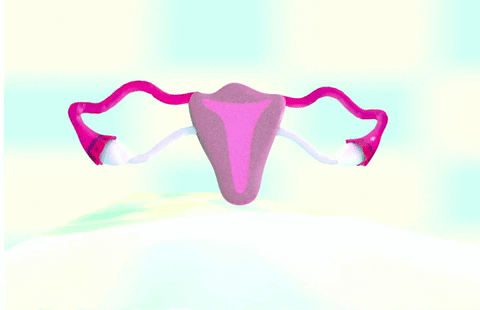

Written by Jackie Giannelli, Founding FNP at Elektra Health
Menopause can be a time of great growth and great uncertainty – one thing we DO know for certain, however, is that menopause will happen to every woman, or person with ovaries, at some point in their lifetime.
There are many ways we can enter the menopause transition: naturally with age, medically (after chemotherapy, for example), or surgically.
So, what exactly is surgical menopause? Simply put, surgical menopause refers to menopause that results following the surgical removal of the ovaries.
But why does menopause occur after the removal of ovaries? Do all hysterectomies cause menopause? And how can we combat these sudden menopause symptoms?
When the ovaries are removed, there is a precipitous drop in hormone levels (estrogen, but also testosterone and progesterone) that comes as a bit of a shock to the system. We often hear women describe this experience as “running into a brick wall.” This is especially the case for women who enter surgical menopause before the age of 45, which is considered to be early menopause. For this population of younger women, the rapid loss of estrogen is not only associated with more severe short-term menopause symptoms, like hot flashes, night sweats, mood swings, and loss of sex drive, but also with harmful long-term symptoms, including osteoporosis, cardiovascular disease, and vaginal dryness. As a result, women who are planning to undergo surgical removal of the ovaries need and deserve proper counseling on what to expect in the days and months following surgery, as well as what treatment options are available to them.
But first, let’s take a moment to define some of the medical jargon that often gets thrown around when it comes to talking surgical menopause (it sure can get confusing)…
Hysterectomy: The surgical removal of the uterus. There is more than one type of hysterectomy: a total hysterectomy means that the cervix and uterus were both removed and a partial hysterectomy means that the uterus was removed but the cervix was left intact.
Oophorectomy: The surgical removal of the ovary (a bilateral oophorectomy is the removal of both ovaries). Surgical removal of BOTH ovaries is what is defined as surgical menopause. Even women with one ovary can still ovulate and can still enter menopause naturally.
Salpingectomy: The surgical removal of the fallopian tubes (one or both), the tubes that lead from the ovaries to the uterus
So now that we have the basics covered, let’s understand how this pertains to menopause, using some examples:
Let’s start with Jane. Jane has been suffering with terrible painful and heavy periods due to large uterine fibroids and endometriosis. She has tried everything she can to avoid surgery, but settles on a hysterectomy with her doctor. She has no personal or family history of breast or ovarian cancer and is only 42 years old, so they decide to leave both of her ovaries in place. Will Jane be in menopause after her surgery?
Answer: No! Since Jane still has both ovaries, she will still be producing estrogen – and even though she wont get her menstrual period anymore, she wont experience menopause until her own natural age of menopause.
Next, let’s talk about Barbara. Barbara is 48 years old and still gets a regular menstrual period. She recently found out that she carries the BRCA2 gene after her older sister was diagnosed with ovarian cancer and she underwent genetic testing. As a result, she decides to have a risk-reducing bilateral oophorectomy and salpingectomy. However, she decides to leave her uterus in place to avoid the increased risk of pelvic pain with intercourse. Will Barbara be in menopause after her surgery?
Answer: Yes! Even though Barbara didn’t have a hysterectomy, the estrogen levels in her body will have rapidly dropped with removal of her ovaries and without treatment, she will very likely be experiencing some menopausal symptoms right out of surgery.
At Elektra Health, we often hear from women who have had removal of their ovaries AFTER they have gone through a natural menopause, often for benign conditions. Some of these women are very surprised to find that their menopausal symptoms started back up again, or worsened as a result. For reasons not yet well understood, we believe that this is due to the fact that even though a woman has made it past her final menstrual period (yay!), the ovaries are still functioning at a very low level to make some small amount of sex hormones. This allows for a gradual transition out of perimenopause and into the postmenopausal phase. Therefore, even postmenopausal women should have the proper education, counseling and support when weighing the risks and benefits of oophorectomy and hysterectomy.
Unfortunately, there are plenty of women who do not have a choice, and removal of the ovaries and uterus is a life-saving surgery. However, especially for those who need surgery at a younger age, hormone replacement therapy (HRT) is often a viable treatment option and is considered the standard of care. It is also important to understand that the risks we typically think of with HRT (breast cancer in particular) do not apply to this group of younger women. In fact, these women should be offered HRT through the average age of menopause to stave off the long term consequences of early menopause such as cardiovascular disease, osteoporosis, dementia, and sexual dysfunction.
Are you a woman who has gone into a surgical menopause, and are feeling the blow? Are you considering or planning for surgery that could put you into menopause? Are you feeling overwhelmed and have questions about how to navigate this conversation with your doctor or surgeon? Our board certified menopause practitioners are here to help. A wellness consultation with an Elektra provider is a great way to get all of your questions answered, and feel empowered and educated to make the best decision you can for your health.
READ MORE:
- Surgical Menopause Symptoms: What To Expect
- How Long Do Surgically-Induced Menopause Symptoms Last
- Navigating Life After Surgical Menopause: What To Know & How To Prepare
- A Hysterectomy Expert on What To Know About Surgical Menopause
- How Being A Women’s Health Provider Helped Me Navigate A Difficult Genetic Decision



